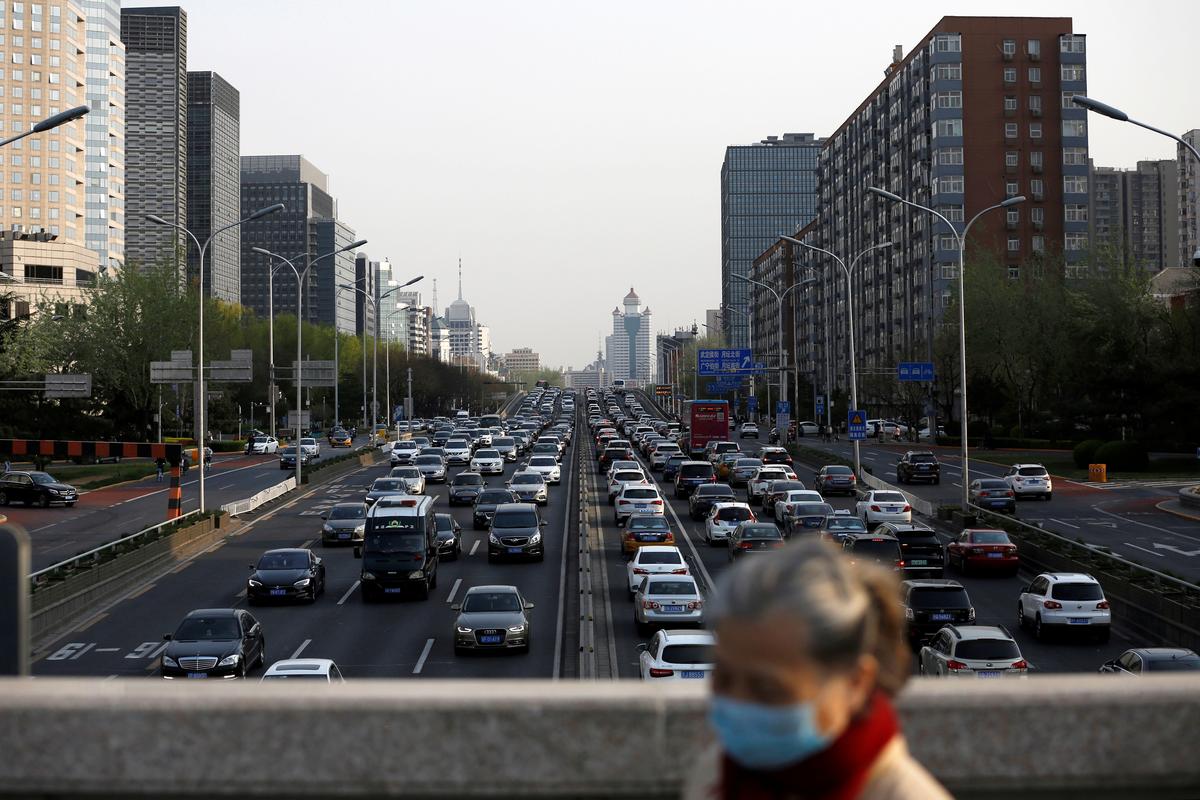NEW YORK (Reuters) – As Americans plan for life after pandemic lockdowns, many want to avoid public transport and use a car instead, straining already underfunded transit systems and risking an increase in road congestion and pollution.
FILE PHOTO: A woman wearing a face mask walks on a bridge as cars are seen in a traffic jam during evening rush hour in Beijing, as the country is hit by an outbreak of the novel coronavirus disease (COVID-19), China April 8, 2020. REUTERS/Tingshu Wang/File Photo
Several opinion polls show Americans plan to avoid trains and buses as stay-at-home orders ease, with some city dwellers buying a car for the first time. A potential boon to coronavirus-battered automakers, the shift poses a challenge to city planners end environmental goals.
Similar dynamics have played out in China, where transit ridership in large cities remains down about 35% two months after lockdown restrictions were lifted while car purchases increase.
Ford Motor Co Chief Operating Officer Jim Farley said the company has seen an uptick in Chinese demand for higher-priced utility vehicles fueled by upscale office workers who used to take public transport.
Volkswagen AG VWG_p.DE has also seen its sales in China rise above prior-year levels in the final week of April, driven by the desire to avoid public transport, according to Juergen Stackmann, in charge

